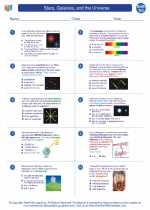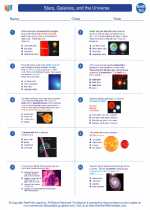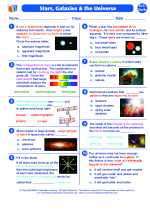Dark Energy
Dark energy is a mysterious form of energy that is thought to make up about 68% of the universe. It is believed to be responsible for the accelerating expansion of the universe. Unlike dark matter, which interacts through gravity and has a slowing effect on the expansion of the universe, dark energy behaves like a repulsive force, causing the expansion to accelerate.
Characteristics of Dark Energy
1. Repulsive Force: Dark energy is thought to have a negative pressure, causing it to have a repulsive gravitational effect, leading to the acceleration of the universe's expansion.
2. Uniform Distribution: Dark energy is believed to be evenly distributed throughout the universe, leading to its pervasive influence on the large-scale structure of the cosmos.
3. Constant Density: One of the leading theories regarding dark energy is that it has a constant energy density, which means its effects on the universe remain constant as the universe expands.
Impact on the Universe
The presence of dark energy has significant implications for the future of the universe. It suggests that the expansion of the universe will continue to accelerate, leading to the "Big Rip" scenario, where the universe could eventually be torn apart as the expansion overwhelms the gravitational forces holding galaxies and other structures together.
Study Guide
When studying dark energy, it's important to focus on the following key points:
- Understand the difference between dark energy and dark matter, including their effects on the universe's expansion.
- Explore the various theories and models proposed to explain the nature of dark energy, such as the cosmological constant and quintessence.
- Examine the observational evidence for dark energy, including the measurements of cosmic microwave background radiation and the large-scale distribution of galaxies.
- Consider the potential future scenarios for the universe based on the presence of dark energy, such as the "Big Rip" and the "Big Freeze."
◂Earth Science Worksheets and Study Guides High School. Stars, Galaxies, and the Universe

 Worksheet/Answer key
Worksheet/Answer key
 Worksheet/Answer key
Worksheet/Answer key
 Worksheet/Answer key
Worksheet/Answer key
